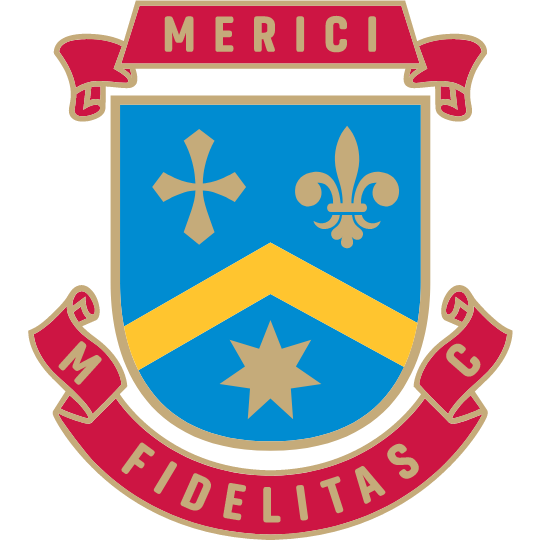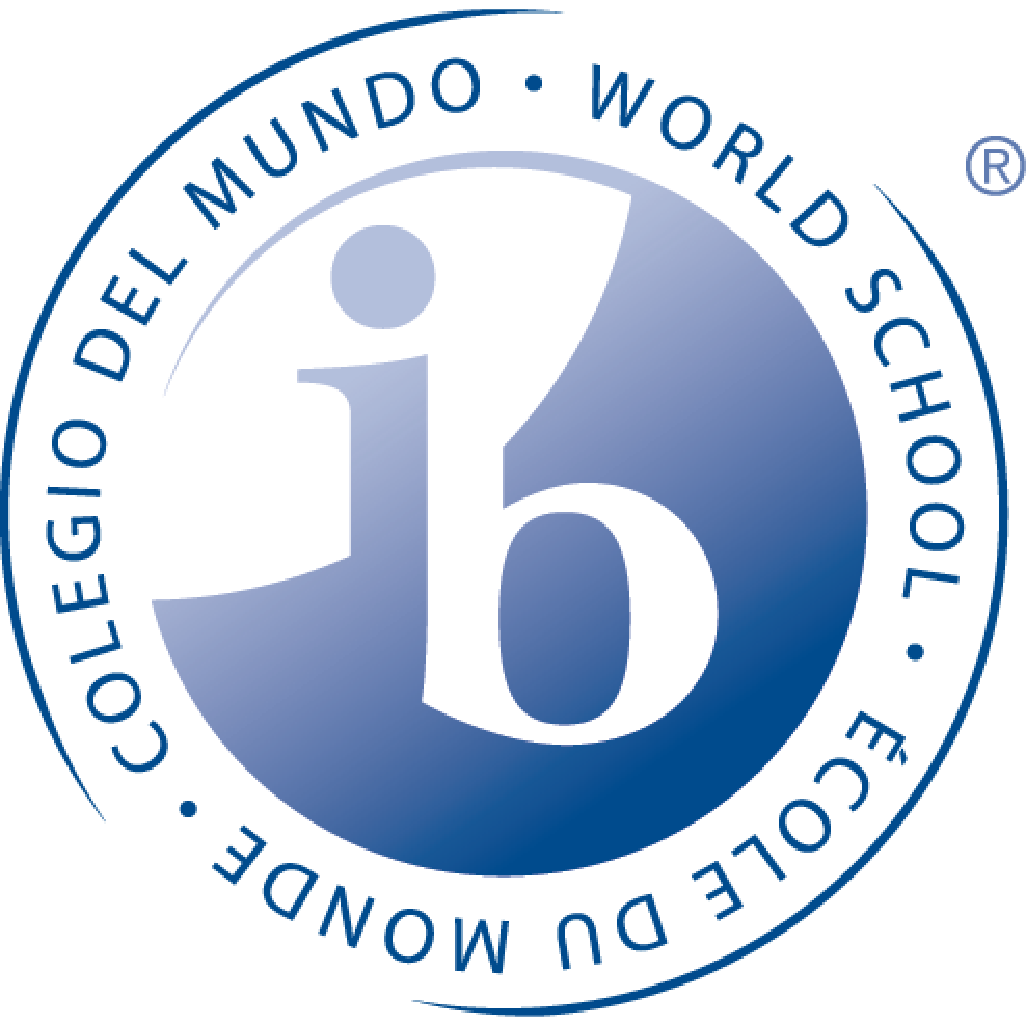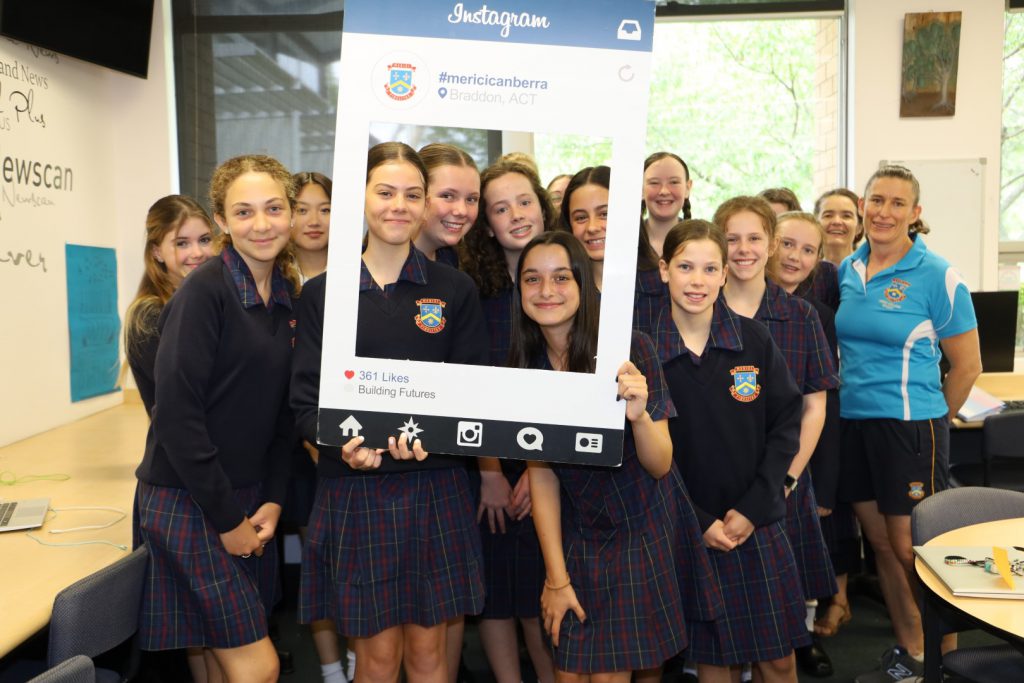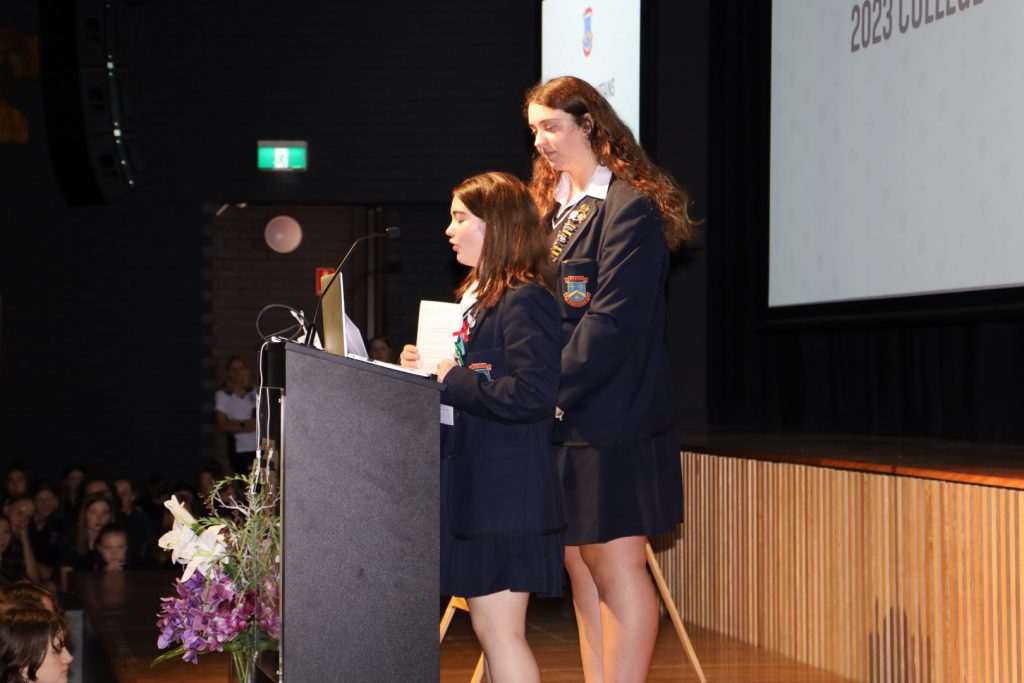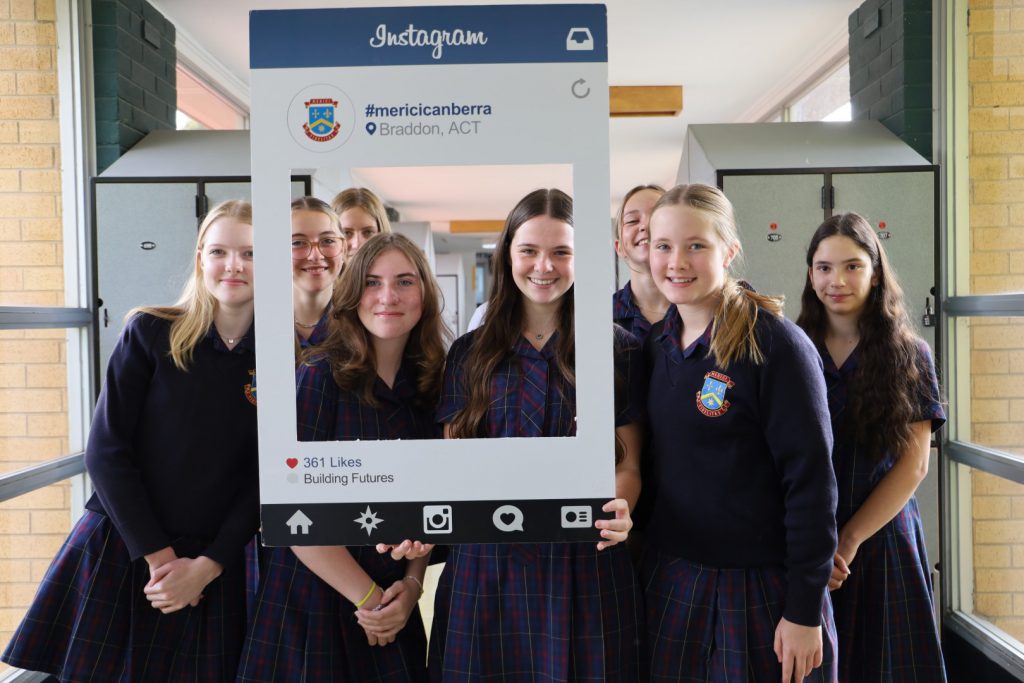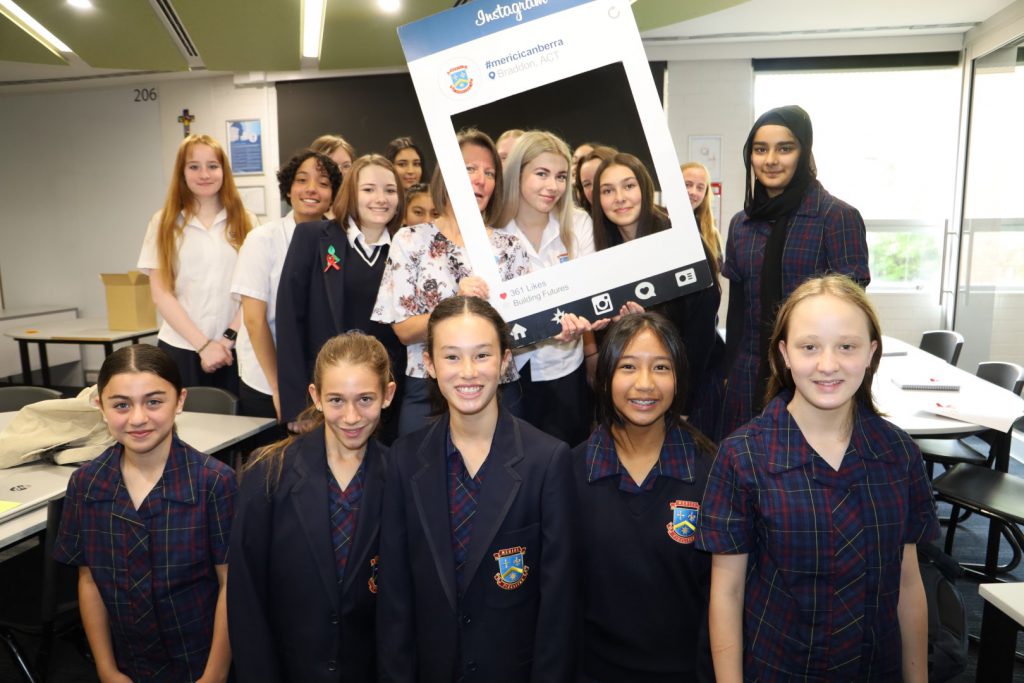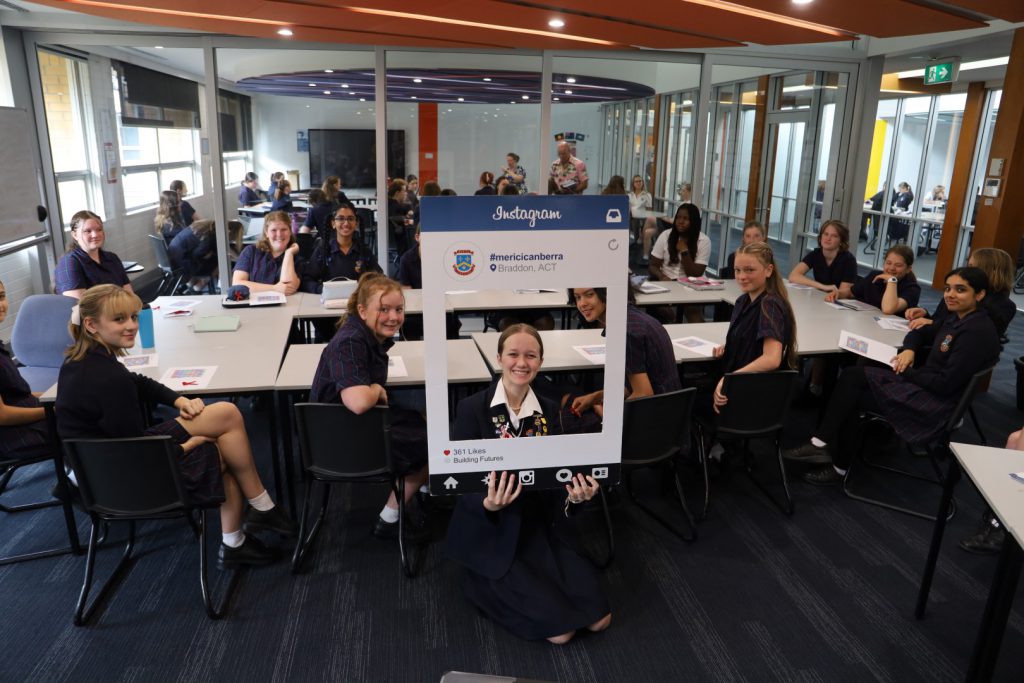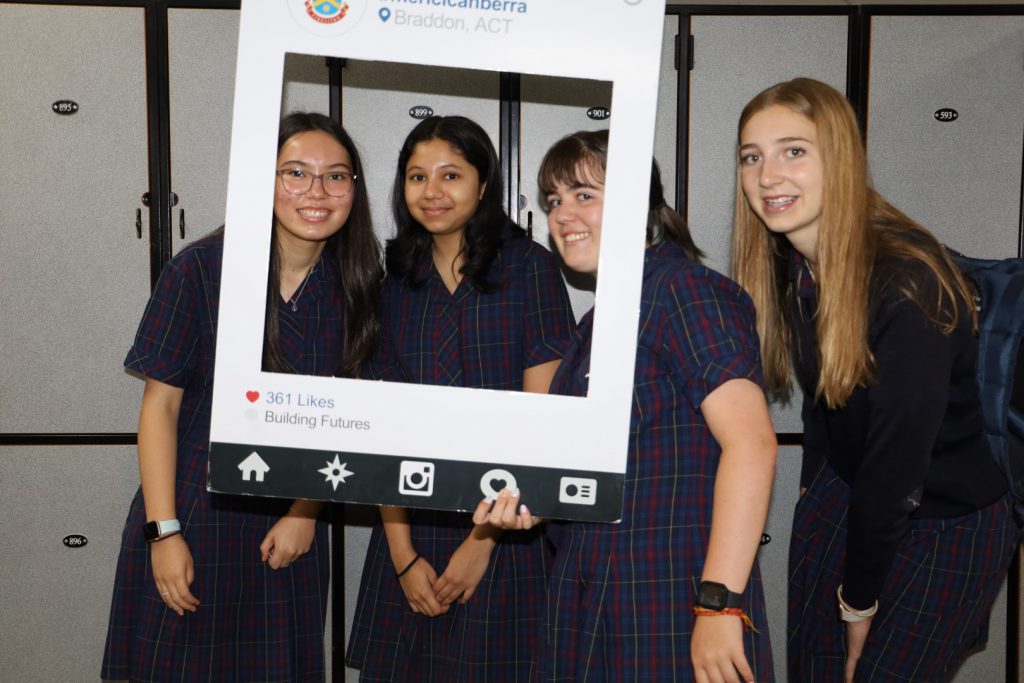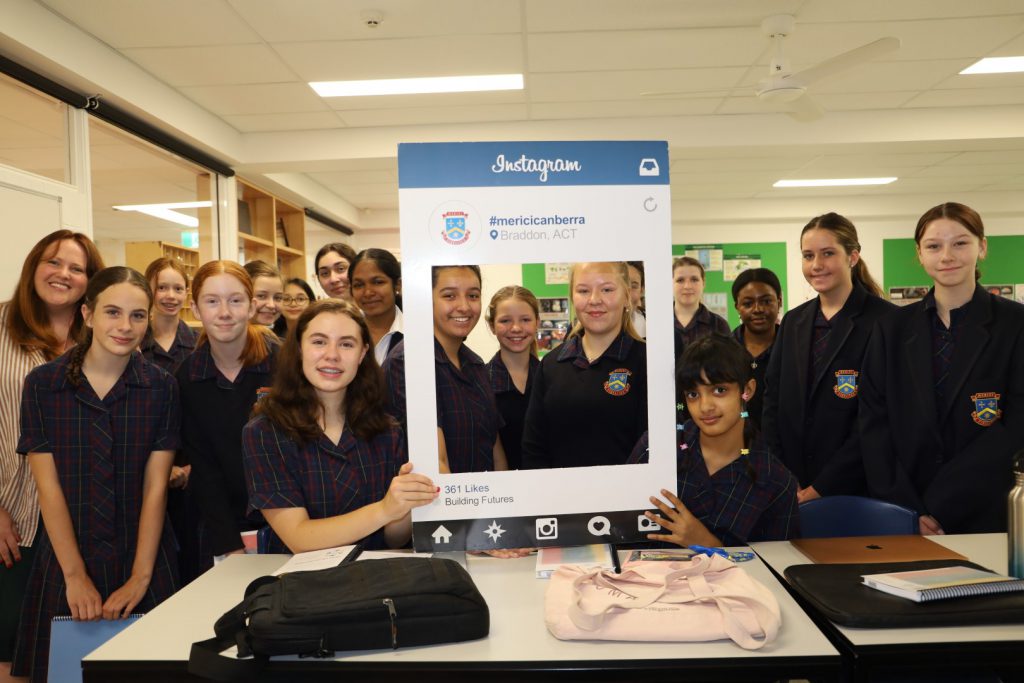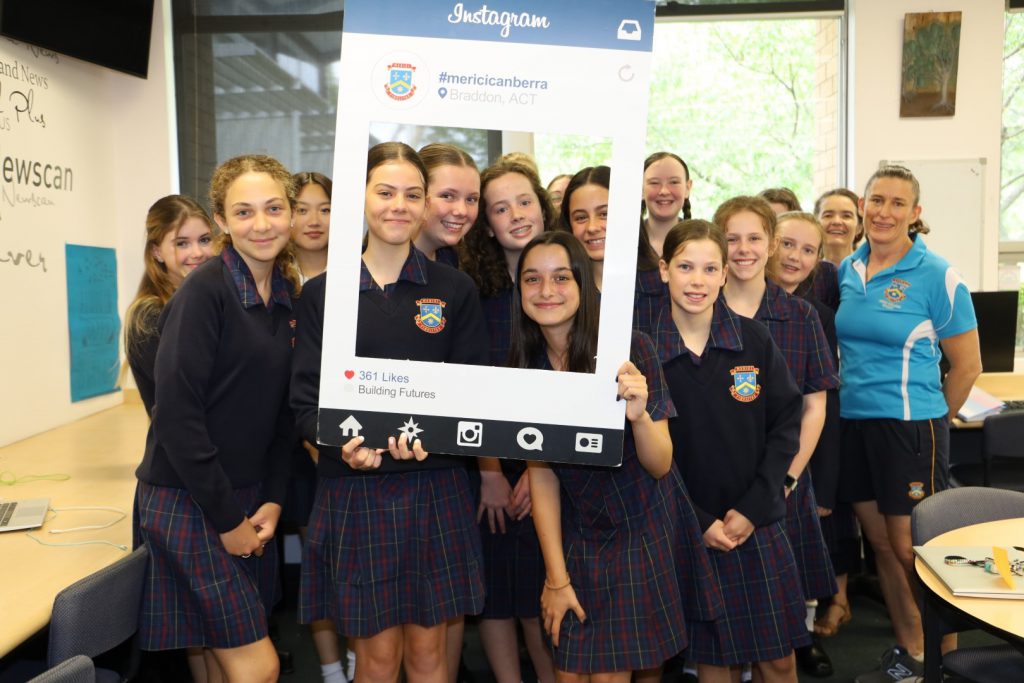PRINCIPAL’S ADDRESS
Welcome all to the commencement of the 2023 school year. I hope that you had a lovely summer, full of rest, rejuvenation, good health and time with your loved ones.
I also trust that all are ready for a year that we know will be filled with both wonders and challenges. I am so confident that our way of being, the charism of St Angela Merici, and our values will help us navigate whatever comes our way this year. I will always start a year by reminding you about what wise members of our community, including students here at the college have identified as our non-negotiable values.
They are:
Fidelitas
We are a faithful community.
Integritas
We are a principled community.
Communitas
We are an inclusive community.
And
Spes, the Latin word for hope
We are a hope-filled community.
Each of these values are integral to our theme for this year, Communitas. Our symbol for 2023 points to the collaborative and relational nature of this concept: we gather together, in all our wonderful diversity, to face into each other as one community. Thank you to Ms McLeod who, as she has done for so long, designed our image for the year. There are other symbols that represent community to me: the circle, hands that clasp in friendship, expansive shelters such as tents that cover and shelter all, wells around which people meet to communicate, share their lives and source life giving water… loaves, fishes and meal tables representing hospitality and nourishment. I could go on!
Our ribbon colour for 2023 is red. I believe that in the context of our theme, this colour is a powerful representation of connection, courage and compassion. This year, the Merici community is especially being called, as people of God, to activate our hearts, heads and hands to connect to those around us. We are being invited to walk in Jesus’ footsteps and be inspired by his model of love, acceptance, mercy and understanding. I see our theme of connection in so many of Jesus’ parables – the Good Samaritan being one. I see it in many of the gospel accounts of Jesus and his followers gathering together to share each others’ company. I see it in the Martha and Mary story which illustrates just how important Jesus thought it was for all of us to take time in our busy lives to stop and connect with each other, to share stories, ideas and to commune spiritually with our God. Jesus asked his followers to welcome those on the margins and, by gathering, to form “church”. He says in Matthew, “For where two or three gather in my name, there am I with them.” (Matt 18:20).
UBUNTU
There is a powerful African philosophy that emphasises the importance of community. Great leaders such as Nelson Mandela and Archbishop Desmond Tutu often referred to it when pointing out that healing is achieved in community not in isolation. The Shona term for this way of being is Ubuntu. It essentially means “I am because we are”.
Nelson Mandela says that Ubuntu encompasses the interdependence of humans on another and the acknowledgment of one’s responsibility to their fellow humans and the world around them.
Archbishop Tutu eloquently describes someone with ubuntu:
“A person with Ubuntu is open and available to others, affirming of others, does not feel threatened that others are able and good, based from a proper self-assurance that comes from knowing that he or she belongs in a greater whole and is diminished when others are humiliated or diminished, when others are tortured or oppressed.”
In 2008 he said:
“One of the sayings in our country is Ubuntu – the essence of being human. Ubuntu speaks particularly about the fact that you can’t exist as a human being in isolation. It speaks about our interconnectedness. You can’t be human all by yourself, and when you have this quality – Ubuntu – you are known for your generosity.
We think of ourselves far too frequently as just individuals, separated from one another, whereas you are connected and what you do affects the whole world. When you do well, it spreads out; it is for the whole of humanity.”
Essentially, it means: “I am what I am because of who we all are.”
In the holidays I started to search for well known Australians who have ‘ubuntu’. Sitting on a Qantas plane and reading their magazine gave me some answers. One example is a woman called Professor Susan Kurrle. She is a geriatrician and the Curran Chair of Health Care of Older People in the Faculty of Medicine at the University of Sydney. She loves what she does and has come to prominence beyond the medical world as the senior geriatric consultant for the incredible ABC documentary series called Old People’s Home for 4 Year Old’s, a show I fell in love with. Her research into intergenerational care was the foundation for a program where the merging of aged- and child-care facilities saw chair-bound seniors up making slime and singing rhymes. Elderly wisdom and infant naivety combined on topics as complex as war and death, narrowing the gap between age groups and sending wellbeing soaring. “The children had no ageism,” Susan Kurrle said in the piece I was reading. “They were non-judgmental.” She pointed out that more than simply making for must-watch TV, the regular interaction between old and young showed positive outcomes for both groups. She said “If you looked at it purely as a medical intervention, it was very effective and relatively cheap – with no side effects!”
Susan Kurrle believes the multi-generational family living model that was once the norm should help shape the future of aged care. “In our family and with friends it’s the relationships between us that are important. I think we need to keep that going in residential-care facilities; we have to make it much more home-like,” she says. “I would love to see the acceptance that older people need to be part of the community.”
What a wonderful example of someone with ‘ubuntu”. Her life work illustrates that our community is only as good as the way we support and include members of it – in her case, the elderly. We are elevated or diminished by our inclusion or exclusion of others.
Community is something we all want.
No matter what our age or how we are wired—introvert, extrovert, socially adept or socially awkward—something in our soul longs for meaningful relationships with other humans. We long to know others and be known by them. We treasure friendships that allow us to truly “be ourselves.” Though some of us have never found this sort of community and though others have been deeply wounded by relationships, all of us still long for deep, authentic, real community.
This year I challenge you to look beyond self and work to build community..
You might like to consider the following ideas and questions:
- How patient you are—as long as no one is getting on your nerves?
- How loving you are—as long as you’re surrounded by people who are easy to love?
- How humble you are—as long as you’re respected and admired by others?
- How might you become someone with ‘ubuntu’ through simple actions to contribute to your varied communities: family, friends and school?
- Is your “I am because we are” good enough?
Our need for connection and community is primal. The need to belong is as fundamental as the need for air, water, and food. I trust that in 2023 we will deeply focus on ensuring that as many members of our community have that need met. That will then shape our “I am” in a positive light and in the image of Christ who is the ultimate example of what “I am” and “we are” can be.
Welcome to 2023 at Merici College.
Mrs Anna Masters
Principal

